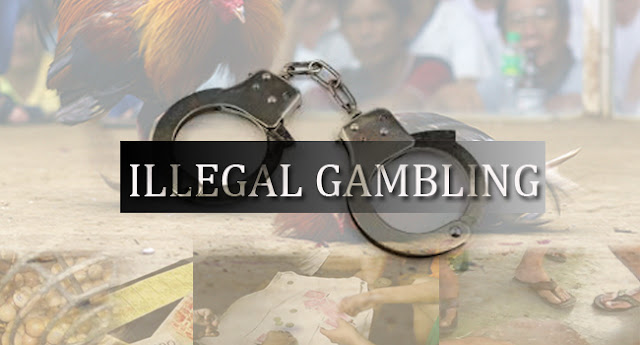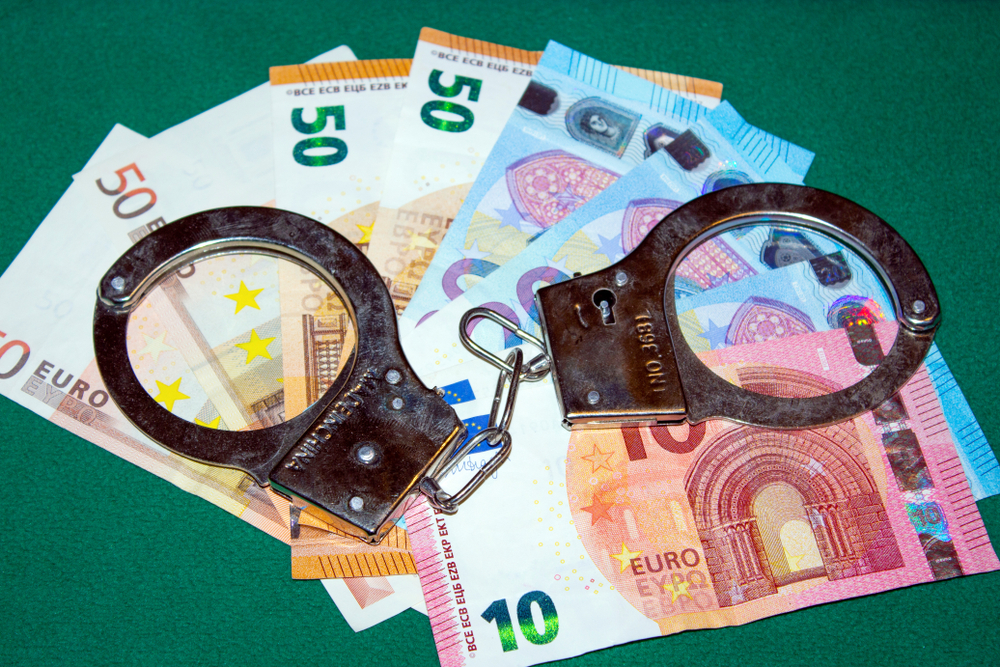Why are some forms of gambling legal while other forms are not permitted?
A: The Nebraska State Constitution (Article III, Section 24) is the base to determine what forms of gambling are permitted or prohibited. Until 1934 ALL forms of gambling were illegal. At that time the Constitution was amended to permit pari-mutuel horse racing when conducted on licensed race track enclosures. In 1958 the Constitution was again amended to permit bingo games conducted by nonprofit associations. In 1967 the Constitution was again amended to regulate raffles, lotteries and gift enterprises for charitable and community betterment purposes. Next in 1988 it was amended to permit simulcasting of horse races.
Who is responsible for licensing legal forms of gambling?
. Social gambling, like bingo games, private card games, or charity auctions are allowed unless the organizer takes a portion of the proceeds. The law in Texas says that gambling may occur in a private place as long as the chance of losing and winning are evenly distributed. Slot machines with cash payouts are illegal in Texas. (A) is operated without an appropriate money transmitting license in a State where such operation is punishable as a misdemeanor or a felony under State law, whether or not the defendant knew that the operation was required to be licensed or that the operation was so punishable.
A: The Nebraska Department of Revenue, Charitable Gaming (http://www.revenue.nebraska.gov/) maybe contacted for additional information on Bingo games, raffles, lotteries and gift enterprises.
The Nebraska State Racing Commission (http://racingcommission.nebraska.gov/) maybe contacted for additional information on horse racing in Nebraska.
A: Gambling has three elements, Consideration, Chance and Reward. Gambling takes place when (Consideration) an individual puts up something of value; i.e., money or property, etc on (Chance) the outcome of an event that is determined by chance, i.e., casino games, rather than the experience or skill of the individual, or the outcome of an event that the individual has no control over the outcome, i.e., football, baseball, basketball games, etc, and (Reward) the individual has the chance of winning something of value.
Is gambling permitted in locations licensed by the Nebraska Liquor Control Commission?
A: Yes, legal forms of gambling such as raffles and lotteries, which is where Pull Tabs/Pickle Cards, Punch Boards, Keno, and Power Ball are found.
What are some of the forms of illegal gambling that have been found in licensed establishments?
Is Gambling Without Money Illegally
A: Wagering or betting on Football or other sporting events. Football, baseball pools, regardless of the dollar amount. Any games or schemes determined by chance which require the patron to pay a fee to enter. Some video games are illegal.
A: Most video games are games that require player skill. The player inserts money, normally less than $1.00 in the game and is permitted to play. Skill games last for several minutes and the player plays for a high score. Most illegal video games permit the player to insert $1.00, $5.00, $10.00 or $20.00 at a time, some even accept $50.00 and $100.00 bills to purchase credits. Unlike skill games the player is then permitted to wager multiple credits on the game. Most of these games are casino type games, i.e., slot game or poker games and last for only a few seconds. The player can win hundreds and even thousands of credits which the player can then use to wager on additional games. The Nebraska Supreme Court has determined that credits/points are something of value. Therefore the possession of this type of game is illegal regardless if cash payoffs are made or not.
What can happen if any illegal forms of gambling are found in my licensed establishment?
A: If any evidence of any illegal gambling is found on or about a licensed establishment the owner or manager of the establishment can be cited to appear in county court and if found guilty maybe fined and or even placed in jail. It is also unlawful for any licensee to allow any illegal activities on their licensed premises and if found guilty this would place their liquor license in jeopardy of revocation, cancellation or suspension.
A: Most casino night activities are generally considered illegal gambling. Illegal types of gambling include activities where participants pay to play for the chance of winning something of value in games such as blackjack, dice, roulette or poker. The possession or use of gambling devices used in these activities, such as roulette wheels and slot machines, is illegal.
What about games of skill?
If the activity is a game of skill, then criminal penalties don't apply to the participants. Skill activities might include darts, bowling and pool tournaments. However, “casino nights” do not usually include activities based on the outcome of a player's skill, but rather the luck of the draw or some other chance event.
A: One of the elements discussed in question three, must be removed. Players in Texas Hold'em tournaments cannot be charged ANY FEE or be REQUIRED to give anything of value (consideration) as a condition of participation. In other words, players MUST be able to participate in a Texas Hold'em tournament for FREE or no prizes (reward) can be given in the tournaments.
Is Gambling Without Money Illegal Immigrants
What other types of tournaments are legal?
A: Most tournaments are legal. If the game or contest is determined by the player's skill, i.e. Darts, Pool, etc., then an entry fee maybe charged and prizes awarded. However if the game or contest is determined by chance, i.e., casino games, etc., then NO entry fee may be charged or no prizes may be awarded. It should be remembered that non-participants can not wager on the outcome.
A: All Nebraska revised statutes can be found on the Nebraska Unicameral Legislature, Laws of Nebraska at their web site http://www.legislature.ne.gov/. Gambling is found in Chapter 28 – Crimes and Punishments, Section 28-1101 thru 1117.
The main difference between legal and illegal gambling is that legal gambling is monitored by government inspections agencies. But more people gamble because it is legal, and although the government collects taxes on jackpots, Indian casinos and lotteries, the system is highly subject to fraud.
Gambling online is illegal (federally), but this doesn’t stop people from doing it. And even though the Organized Crime Section of the Department of Justice found that “the rate of illegal gambling in those states which have some legalized form of gambling was three times as high as those states where there was not a legalized form of gambling,” we still believe that gambling is a drain to society. Here are our Top 5 reasons why.
Reasons why gambling should be illegal
1. Gambling is subject to fraud.

Legalized gambling, specifically Indian gaming, is the fastest growing industry in the world, and can have a corrupting influence on state government. The governments are addicted to the revenue received from Indian gaming and lotteries. Recently there have been numerous news reports of corruption and fraud in state lotteries.
2. Availability of gambling facilities increases risk of problem gambling.
Legalized gambling makes this activity available to too many people. Governments and casinos portray this as a harmless form of entertainment. Because of the availability of legalized gambling, it is more addictive and destructive than most other addictions.
Furthermore, most citizens would not gamble illegally. Legalized gambling, therefore, entices people to gamble, who normally would not gamble at all. In states with different numbers of games, participation rates increase steadily and sharply as the number of legal types of gambling increases. In fact, legalized gambling in various states has not been a competitor to, but rather has become a stimulator of illegal gambling.
The public is assured they have the potential to win a huge jackpot. All that is required is to drive to the casino or purchase a lottery ticket. Because of the availability of gambling, many gamblers become addicted and compulsive. Interested in how to quit gambling? Read more here.

3. Problem gambling costs society billions annually.
The social costs of gambling addictions will eventually impact careers, physical and mental health issues, bankruptcy, divorce, crimes, and treatment. The gamblers will eventually rely on welfare or unemployment benefits, impacting the government, and the costs could reach several billions of dollars per year.
4. Gambling exploits the poor.
Evidence shows that legalized gambling often hurts and even destroys, especially those who are poor and disadvantaged. If gambling were illegal, the gambling venues would not be able to promote their lotteries, casinos, or other forms of betting and exploit people who are most vulnerable.
5. Gambling sets a double standard for governments.
State lotteries are argueably an effective way to raise taxes. Legalized gambling is a disturbing governmental policy. Governments should promote desirable qualities in the citizens and not seduce them to gamble in state-sponsored vice. When this occurs, the government contributes to the corruption of society.
Legalized gambling is a bad social policy. At a time when independent organizations estimate that there are at least 12 million compulsive gamblers, it does not make a lot of sense to have the state promoting gambling. State sponsorship of gambling makes it harder, for the compulsive gambler to reform.
Compulsive gambling costs
In addition to the above reasons for making gambling illegals, are the economic costs that gamblers themselves incur. The average compulsive gambler has debts exceeding $80,000. Additionally, compulsive gamblers affect the lives of family, friends, and business associates. Some of the consequences of gambling include marital disharmony, divorce, child abuse, substance abuse, and suicide attempts. Other social costs surface because of family neglect, embezzlement, theft, and involvement in organized crime.
Crossing our fingers or wishing on a star will not guarantee a win. The only guarantee is, if a person is a compulsive gambler and continues to gamble, the end result is prison, insanity, or death. Whether gambling is legal or illegal, there will always be gamblers. Wanna bet?